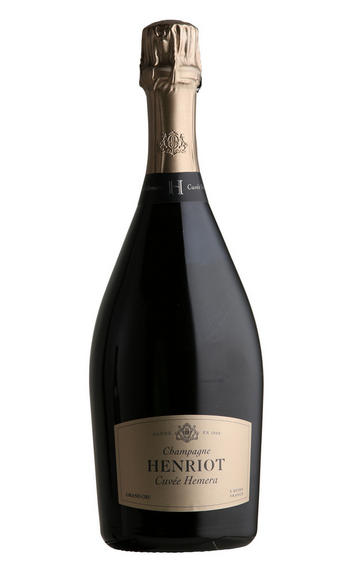
2006 Champagne Henriot, Cuvée Hemera, Brut
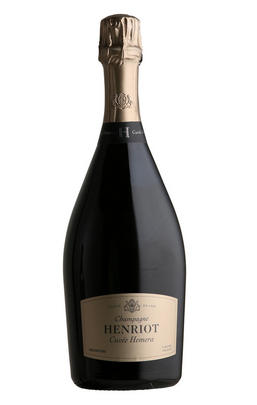
About this WINE
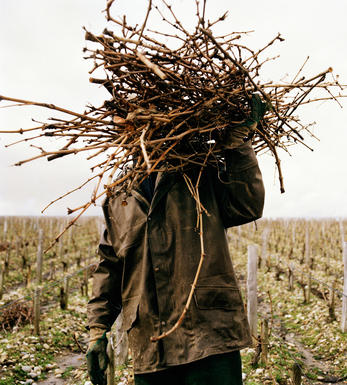
Champagne Henriot
Founded in 1808, the House of Henriot has a long and storied history of crafting exceptional Champagne. As a family-owned Champagne house, it has passed down the art of winemaking from generation to generation over the years.
Champagne Henriot is well-known for its commitment to quality, focusing on producing limited quantities of high-end, premium Champagne. They have access to some of the finest vineyards in the region, allowing them to source the best grapes to create their blends.
The house takes a traditional and meticulous approach to winemaking, utilising Chardonnay and Pinot Noir grapes to craft their Champagnes. This careful selection of grapes and their commitment to traditional techniques result in elegant and refined wines with a perfect balance of fruitiness, freshness, and complexity.
The range includes both vintage and non-vintage cuvées, with each bottle expressing the unique character of the Champagne region. Their wines have earned critical acclaim and are highly sought after by enthusiasts and collectors worldwide, making Champagne Henriot a symbol of luxury and excellence in the industry.
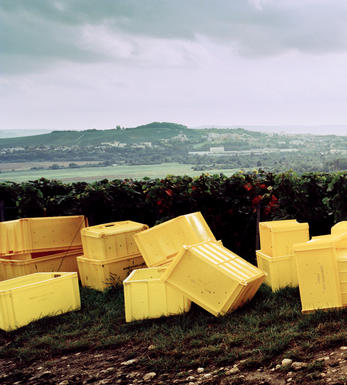
Brut Champagne
Brut denotes a dry style of Champagne (less than 15 grams per litre). Most Champagne is non-vintage, produced from a blend from different years. The non-vintage blend is always based predominately on wines made from the current harvest, enriched with aged wines (their proportion and age varies by brand) from earlier harvests, which impart an additional level of complexity to the end wine. Champagnes from a single vintage are labelled with the year reference and with the description Millésimé.
Non-vintage Champagnes can improve with short-term ageing (typically two to three years), while vintages can develop over much longer periods (five to 30 years). The most exquisite and often top-priced expression of a house’s style is referred to as Prestige Cuvée. Famous examples include Louis Roederer's Cristal, Moët & Chandon's Dom Pérignon, and Pol Roger's Cuvée Sir Winston Churchill.
Recommended Producers : Krug, Billecart Salmon, Pol Roger, Bollinger, Salon, Gosset, Pierre Péters, Ruinart
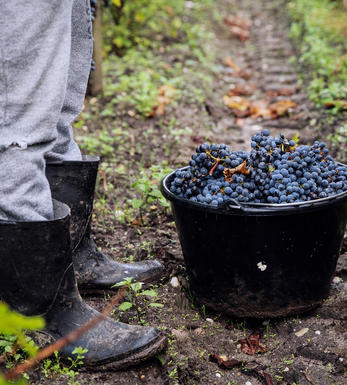
Champagne blend
Which grapes are included in the blend, and their proportion, is one of the key factors determining the style of most Champagnes. Three grapes are used - Pinot Noir, Chardonnay and Pinot Meunier.
26% of vineyards in Champagne are planted with Chardonnay and it performs best on the Côtes des Blancs and on the chalk slopes south of Epernay. It is relatively simple to grow, although it buds early and thus is susceptible to spring frosts. It produces lighter, fresher wines than those from Burgundy and gives finesse, fruit and elegance to the final blend. It is the sole grape in Blancs de Blancs, which are some of the richest long-lived Champagnes produced.
Pinot Noir accounts for nearly 40% of the plantings in Champagne and lies at the heart of most blends - it gives Champagne its body, structure, strength and grip. It is planted across Champagne and particularly so in the southern Aube district.
The final component is Pinot Meunier and this constitutes nearly 35% of the plantings. Its durability and resistance to spring frosts make the Marne Valley, a notorious frost pocket, its natural home. It ripens well in poor years and produces a soft, fruity style of wine that is ideal for blending with the more assertive flavours of Pinot Noir. Producers allege that Pinot Meunier lacks ageing potential, but this does not deter Krug from including around 15% of it in their final blends.


Buying options
Add to wishlist
wine at a glance
Delivery and quality guarantee